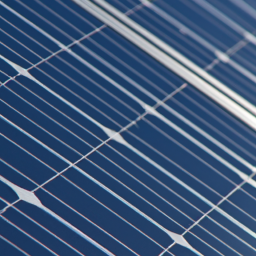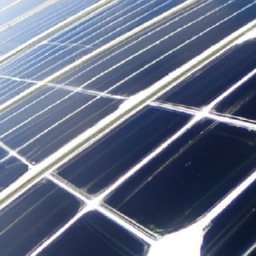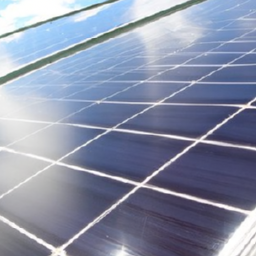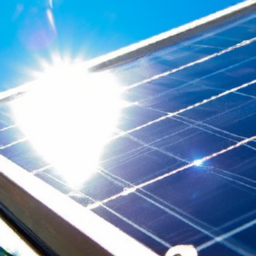Have you ever wondered what you could power with a solar generator? Well, you’re in for a treat because I’m about to spill all the details! Solar generators are a fantastic alternative to traditional generators, especially if you’re looking for a clean and sustainable energy option. They harness the power of the sun to generate electricity, making them eco-friendly and cost-effective in the long run. In this article, we’ll dive into the various devices and appliances you can power with a solar generator, and you’ll be amazed at the possibilities!
Now let’s talk about the exciting things you can power with a solar generator. From small electronic devices like smartphones, tablets, and laptops to larger appliances such as refrigerators, televisions, and even power tools, a solar generator can truly power it all. It’s a versatile and reliable source of electricity, making it ideal for outdoor activities like camping or for emergencies when the power goes out. Imagine enjoying a picnic in the park and being able to charge your phone, play music on a portable speaker, and power a mini-fridge, all thanks to your handy solar generator. In our upcoming article, we will dig deeper into the specific power requirements of different devices and provide you with useful tips on how to maximize the use of your solar generator. So stay tuned and get ready to explore the endless possibilities of solar power!
1. Understanding Solar Generators
A solar generator is a device that converts sunlight into electricity, providing a clean and renewable source of power. Unlike traditional generators that rely on fossil fuels, solar generators harness the power of the sun, making them an environmentally-friendly alternative.
How do solar generators work?
Solar generators utilize photovoltaic (PV) cells, which are made up of layers of semiconductor material. When sunlight hits these cells, it excites the electrons within the material, creating a flow of electric current. This current is then converted into usable electricity that can be stored in batteries or used to power appliances directly.
Types of solar generators
There are different types of solar generators available, each with its own set of features and power capacity. Here are the most common types:
-
portable solar generators: These are compact and lightweight generators that are ideal for camping trips, outdoor events, or emergency power backup. They usually come with built-in batteries and multiple outlets to power a range of devices.
-
Home solar generators: Designed for residential use, these generators are capable of providing power to a variety of appliances and devices within your home. They are larger in size and often require professional installation.
-
Off-grid solar generators: These generators are designed to cater to the energy needs of remote locations or off-grid living. They usually have higher power capacities and can support the energy demands of an entire cabin or house.
2. Appliances That Can Be Powered by Solar Generators
Solar generators can power a wide range of appliances and devices, providing electricity for various needs. Here are some examples:
Lighting solutions
Solar generators can power LED lights, making them ideal for outdoor lighting, camping trips, or even illuminating your backyard at night. Solar-powered LED lights are energy-efficient and can provide hours of illumination without draining the generator’s battery.
Small electronics
Solar generators can power small electronics such as smartphones, tablets, laptops, and cameras. Whether you’re working remotely, camping, or simply enjoying time outdoors, having a reliable power source for your electronic devices is essential.
Kitchen appliances
Certain kitchen appliances can be powered by solar generators, such as blenders, coffee makers, and electric grills. While they may require more power than small electronics, solar generators with higher capacities can handle these appliances for limited use.
Heating and cooling devices
Solar generators can power heating and cooling devices like fans, space heaters, and even air conditioning units. However, it’s important to note that these devices consume a significant amount of power, so a solar generator with a high power capacity and ample sunlight availability is necessary.
3. Powering Outdoor Equipment
Solar generators are perfect for powering various outdoor equipment, providing an eco-friendly and portable energy source. Here are some examples:
Camping gear
When you’re out camping, a solar generator can power your camping gear, such as portable stoves, coolers, and even charging stations for your devices. Instead of relying on disposable batteries or propane tanks, you can enjoy the convenience of renewable energy.
RVs and motorhomes
Solar generators are becoming increasingly popular among RV and motorhome owners. By installing solar panels on the roof, you can charge your solar generator and power all the appliances and systems in your vehicle, including lights, water pumps, refrigerators, and more.
Boats and marine equipment
Solar generators can also be used to power boats and marine equipment. From navigation systems and radios to pumps and lighting, a solar-powered generator ensures that you have a reliable power source on the water.
4. Emergency Power Supply
Solar generators can serve as a valuable backup power supply during emergencies or power outages. Here are some examples of how they can be used:
Backup power during outages
When the grid goes down, a solar generator can provide an independent source of power to keep essential appliances running, such as refrigerators, lights, or medical equipment. This can greatly enhance your comfort and safety during extended power outages.
Medical equipment
For individuals who rely on medical equipment, such as CPAP machines, oxygen concentrators, or refrigerated medications, a solar generator can be a lifesaver during a power outage. It ensures that critical medical devices remain operational, preventing any potential health risks.
Communication devices
In emergency situations, communication is crucial. Solar generators can power communication devices such as radios, cell phones, and laptops, allowing you to stay connected and informed even when traditional power sources are unavailable.
5. Remote Locations and Off-Grid Living
Solar generators are particularly useful for remote locations and off-grid living, where access to traditional power infrastructure may be limited or nonexistent. Here are some examples:
Remote cabins and houses
If you own a cabin or house in a remote area, a solar generator can provide reliable power without the need for costly electrical grid connections. It allows you to enjoy modern conveniences such as lighting, appliances, and entertainment systems, all powered by the sun.
Off-grid communities
Off-grid communities that prioritize sustainable living often rely on solar generators to meet their energy needs. By harnessing solar power, these communities can reduce their carbon footprint while still enjoying the comforts of modern life.
Remote research and monitoring stations
In remote locations where scientific research or monitoring activities are conducted, solar generators can provide a consistent and renewable source of power. They can power equipment, sensors, and communication devices necessary for data collection and analysis.
6. Sustainable Energy Solutions
Using a solar generator offers a range of sustainable energy solutions, contributing to a greener future. Here are some of the benefits:
Reducing carbon footprint
Solar generators produce clean energy, which helps reduce greenhouse gas emissions and dependence on fossil fuels. By embracing solar power, you can contribute to the fight against climate change and create a more sustainable future for generations to come.
Environmental benefits
Solar generators have a minimal impact on the environment compared to traditional generators. They do not produce harmful emissions or noise pollution, making them a more eco-friendly choice for both indoor and outdoor use.
Renewable energy for a greener future
Solar power is a renewable energy source that is abundant and inexhaustible. By investing in a solar generator, you are embracing a sustainable energy solution that harnesses the power of the sun and reduces reliance on non-renewable resources.
7. Limitations and Considerations
While solar generators offer numerous benefits, it’s important to consider their limitations and factors that may affect their performance. Here are some key considerations:
Power capacity and limitations
Solar generators have a limited power capacity, which means they may not be able to power high-energy-demand appliances such as large refrigerators, air conditioners, or power tools. It’s essential to evaluate your energy needs and choose a solar generator with an appropriate power capacity.
Charging time and efficiency
The charging time of a solar generator depends on various factors, including the size of the generator, the number of solar panels, and the amount of sunlight available. It’s important to understand the charging time and efficiency of your solar generator to ensure uninterrupted power supply.
Weather conditions and sunlight availability
The performance of a solar generator relies heavily on sunlight availability. Cloudy or overcast days can significantly reduce the amount of energy generated, impacting the overall power supply. It’s important to consider the weather conditions and assess whether your solar generator can meet your energy needs in various seasons.
8. Customizing Solar Generators
Solar generators can be customized and upgraded to better suit your power requirements. Here are some customization options:
Adding more panels for increased power
If you find that your solar generator is not meeting your energy needs, you can add more solar panels to increase its power capacity. This allows for greater energy generation and storage, ensuring a more reliable power supply.
Battery bank expansion
Expanding the battery bank of your solar generator allows for longer periods of power storage, especially during times when sunlight is limited. This is particularly useful for off-grid living or situations where extended backup power is required.
Inverter upgrades
Upgrading the inverter of your solar generator can increase its power output or enable it to handle larger appliances. This allows for more flexibility in terms of the appliances that can be powered by the generator.
9. Cost and Return on Investment
Investing in a solar generator entails an initial cost, but it can lead to long-term savings and a positive return on investment. Here are some considerations:
Initial investment and long-term savings
The cost of a solar generator depends on its size, features, and power capacity. While it may require a significant upfront investment, you can save on fuel costs and reduce your electricity bills in the long run. The savings can outweigh the initial expense over time.
Comparing to traditional generators
When comparing solar generators to traditional generators, it’s important to consider the long-term cost and environmental impact. Solar generators do not require fuel purchases or produce harmful emissions, making them a more cost-effective and sustainable option in the long run.
Financial incentives and rebates
In many regions, there are financial incentives, rebates, or tax credits available for investing in solar power systems, including solar generators. These incentives can help offset the initial cost and make solar generators more affordable and accessible.
10. Conclusion
In conclusion, a solar generator can power a wide range of appliances and devices, providing an eco-friendly and sustainable source of electricity. Whether you’re looking for backup power during outages, a reliable energy source for outdoor equipment, or a sustainable solution for off-grid living, a solar generator offers numerous benefits.
By understanding the limitations and considerations, customizing the system to your needs, and evaluating the cost and return on investment, you can explore the possibilities of solar-powered living and contribute to a greener future. Embrace the power of the sun and enjoy the convenience and sustainability of a solar generator.




